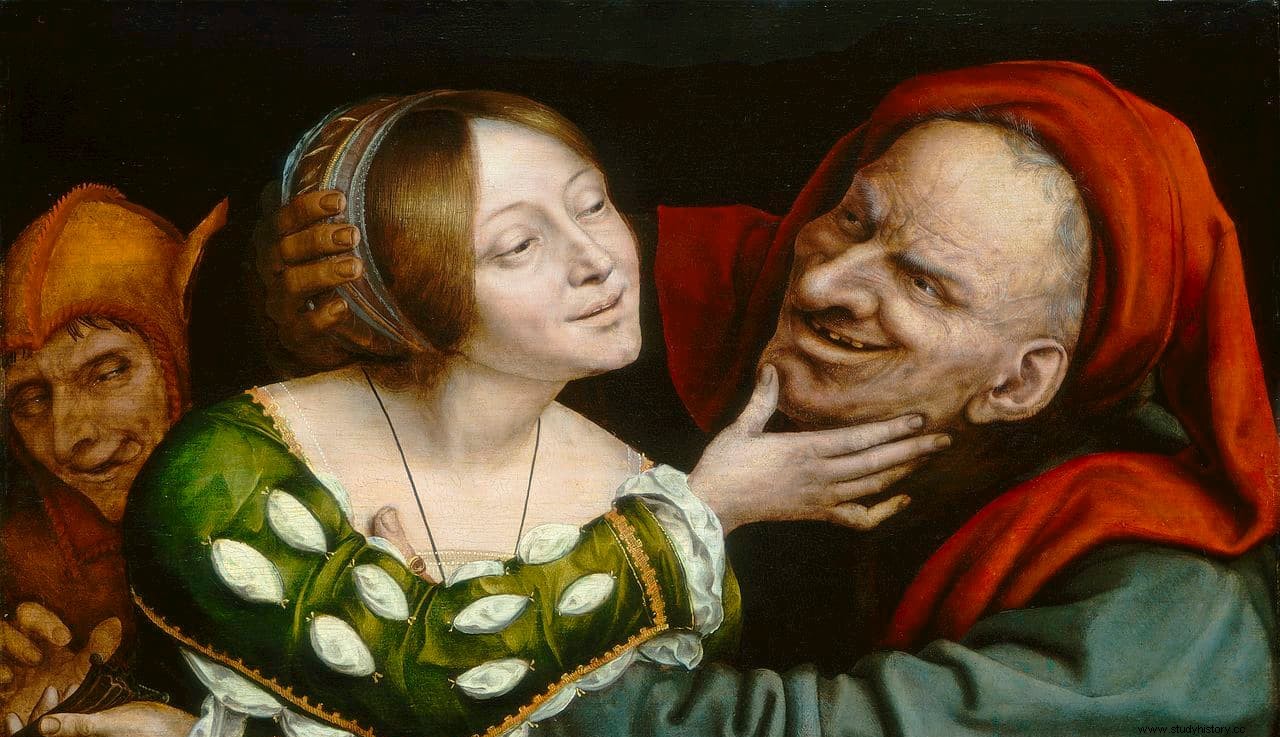Historically, marriages for love they were given almost exclusively in songs and literature; a wedding was something too serious to be celebrated for something so ethereal and this was especially true for the royal families, the nobles and the wealthy because of alliances and such, but it also occurred among the popular classes where a good marriage could mean get out of poverty or at least improve, either economically or socially (or both).
In other words, it was a business essentially, in which the bride contributed money, the famous dowry , which should serve to collaborate in the maintenance of conjugal life, since this, on a day-to-day basis, would be the responsibility of her husband. However, not all cultures adhered to these characteristics and in some this contribution was mutual or evenmasculine .
Indeed, there is a whole tradition in which it is the groom's family the one that assumes that custom, technically called excrex . It is practiced in certain regions of Asia (more specifically India and China), Africa and, above all, the Muslim world. In the latter case, it receives the name of mahr or sadaq and has its legal basis in the Koran, in verse 4 of Sura An-Nisa dedicated to women.
It was explicitly included in the prenuptial contract, being called mahr al-musamma , which means assigned dowry; if it was not made explicit, it became known as mahr al-misl , that is, appraised dowry, which was based on the social class to which one belonged. Some countries like Turkey have eliminated the mahr of the legislation, leaving it in a simple voluntary gift. But in others, like Iran, it is still in force in its civil code.

The explanation is simple:the mahr constitutes a kind of life insurance for the woman in the event that she becomes a widow, since by law she can only inherit a quarter of the marital assets and the mahr she would receive it in full, or that a divorce would take place, since in this second case she does not usually have the right to the properties of her husband.
The amount of that dowry male varies depending on a series of factors such as the age of the husband, her wealth and that of her family, her beauty, her ethical and spiritual values, her virginity or even the gifts they have received. contributed her sisters, among others. In general, offer a mahr elevated serves to present himself as a good match and eliminate rivals at the hand of the beloved; demanding it also obeys some specific reasons -apart from those mentioned above-, such as persuading a possible divorce, having financial means to have a more or less independent life in case she is the one who requests a divorce, support the children in case of separation, etc.
Now the mahr It is not the only case of male dowry. It also occurred in some parts of Europe , since, like the previous case, it is based on reviews of the sacred books, the Bible and the Talmud. In Spain, for example, Aragonese and Catalans they had a variety called escreix (you grow), also known as tenth .
The escreix is defined as a donation -it is not clear whether it is voluntary or compulsory- made by the husband to his wife in attention to her virginity and other personal qualities, in a very similar way to what was dictated by the donatio ante nuptias of Roman Law; in fact, in Tortosa it was called donació per nupcies .
Experts say that European male dowry has a different origin than the mahr , since it is situated in the tradition of medieval Germanic Law embodied in the morgengabe or morning donum (morning donation , a name that came from being given by the husband to the wife the first morning after the wedding night, as a premium virginitatis , that is, a prize after having verified her virginity).
Some authors believe that it was the Visigoths who introduced that custom in the Iberian Peninsula and, therefore, origin of the aforementioned local version; but others consider it unlikely, at least in a general way, because Visigothic law referred exclusively to that town, understood as a social class. In any case, the morgengabe persists as a historical and anthropological curiosity in some corners of Austria.
